NEWS
- Service C5 prototyped and operational at the end of 2020
- Service E1 prototyped and operational at the end of 2020
- Service A1 operational at the end of 2020
PRESENTATIONS
Presentation at Virtual EPSC 2021 by Martina MORONI
EPSC2021-120-material-r0 from Copernicus Meetings on Vimeo.
Presentation at Virtual EPSC 2021 by Nicolas André
EPSC2021-629-material-r0 from Copernicus Meetings on Vimeo.
Presentation at Virtual EPSC 2020 by Nicolas André
PUBLICATIONS
Aizawa, S. et al., Cross-comparison of global simulation models applied to Mercury's dayside magnetosphere, Planetary and Space Science, Volume 198, article id. 105176 (2021), doi: 10.1016/j.pss.2021.105176
Hadid, L. et al., BepiColombo's cruise phase: unique opportunity for synergistic observations, Frontiers in Astronomy and Space Sciences, Volume 8, id.154 (2021), doi: 10.3389/fspas.2021.718024
DISSEMINATION
TP8 session on Planetary space weather and space weathering on airless bodies co-organized at EPSC 2021
The surfaces of air-less celestial bodies are directly exposed to the environmental radiation, ions, and micrometeoroids. The result of these interactions is an alteration of the surface structure and chemical composition, generally referred to as space weathering. At the same time, these interactions release surface material that refills the surface-bounded exosphere and, directly or indirectly, is a source of planetary ions in the environment. The study of the planetary response to variable external conditions is the broad meaning of planetary space weather. Over the next decade, the BepiColombo mission to Mercury and JUICE mission to Jupiter's system, together with the Moon space exploration program, will offer unprecedented opportunities to investigate the interaction processes at airless bodies.
- on all the air-less bodies interacting with solar wind (like Mercury, Moon and asteroids) or with magnetospheric ions (outer planets icy moons);
- on micrometeoroid gardening and impact vaporization effects onto the surface and onto the exosphere;
- on the effects of other agents like photons, electrons, and high-energy particles;
- on laboratory experiments for investigating surface release processes and surface modifications;
- on spectral measurements of various planetary analogous undergone space weathering processes.
MITM8 session on Planetary Space Weather organized at EPSC 2020
The emphasis of the session is on all aspects of the conditions in the Sun, solar wind and magnetospheric plasmas that extend the concepts of space weather and space situational awareness to other planets in our Solar System than Earth, and in particular to spacecraft that voyage through it. Abstracts on space- and ground-based data analysis, theoretical modeling and simulations of planetary space weather are welcomed. The description of new services accessible to the research community, space agencies, and industrial partners planning for space missions and addressing the effects of the environment on components and systems are also strongly encouraged. This session will also summarize the planetary space weather services developed during Europlanet RI H2020 as well as introduce the future ones to be developed by the Sun-Planet Interactions Digital Environment on Request Work Package during Europlanet RI H2024.


